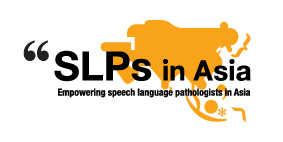Brief History of SLP development
The journey of speech and hearing specialization in India was started in the 1960s by two founding fathers of the speech and hearing profession. Dr. Natesh Ratna received master’s and doctorate degrees in the U.S. and established the first speech clinic in the country at Bai Yamunabai Laxman (BYL) Nair Hospital in Bombay in 1962 (Hedge, 1992). Ramesh K. Oza started the Bachelor of Science in Speech and Hearing program at BYL Nair Hospital Bombay in 1966 after receiving a master’s degree from the U.S. It was the first training program in India as well as in Asia.
The first government-approved institute for speech and hearing education was in Mysore with a fortuitous mixture of support, including a donor (the Maharaja of Mysore), initiatives from the government of India, and the support of Dr. Martin F. Palmer, a renowned SLP from the U.S. The institute was originally named “Institute of Logopedics” and later became known as the All India Institute of Speech and Hearing (AIISH) (Hedge, 1992). AIISH was established in 1966 as an autonomous institution fully funded by the Ministry of Health and Family Welfare, Government of India. AIISH began by providing clinical services and facilitating professional educational programs. Initially, a two-year master’s program was created that admitted graduates from related fields such as psychology and linguistics. A three-year undergraduate program was subsequently established between 1966 and 1969. The profession began as a combination of speech and hearing education at the undergraduate and graduate levels. In 1983, a second government institution known as the “Ali Yavar Jung National Institute of Speech and Hearing Disabilities” (AYJNISHD) was established in Mumbai, offering undergraduate and graduate programs in speech and hearing. This was an autonomous organization under the Department of Empowerment of Persons with Disabilities, Government of India.
Education
Currently, students enrolled in undergraduate programs study both SLP and audiology. A Bachelors in Audiology and Speech-Language Pathology (BASLP) degree is the minimum qualification requirement. The undergraduates can work as audiologists as well as speech therapists in India. There is no national license examination for speech therapists or audiologists. Professionals can receive further education by enrolling in a master’s degree program with a specialization in SLP or audiology. Currently, including both government and private institutions, a total of 77 colleges offer undergraduate BALSP degree programs, 25 colleges offer Master in Audiology postgraduate degree programs, and 26 colleges offer Master in Speech-Language Pathology postgraduate degree programs. Several colleges also offer Ph.D. programs.
Licensure system
Efforts to streamline rehabilitation services led to the formation of the Rehabilitation Council of India (RCI) where a license issues for both audiologists and SLPs. RCI was set up as a registered society in 1986. In 1993, it became a statutory body in the Ministry of Social Justice and Empowerment. A mandate was given to RCI to regulate and monitor services provided to persons with disabilities, standardize education curricula, and maintain a central rehabilitation register of all qualified professionals and personnel working in rehabilitation and special education. The RCI Act also prescribes punitive action against unqualified persons delivering services to persons with disabilities. The criteria to get the RCI license is to have completed a bachelor’s or master’s degree in Speech Language Pathology and Audiology from a RCI accredited educational institution. The RCI certificate needs to be renewed every five years by attending continuing professional education from RCI approved seminars/conferences. Private universities offer speech and hearing programs with a syllabus and models provided by the RCI. Understanding the importance of clinical expertise, RCI added a one-year internship to the existing three-year undergraduate program. In 2010, the master’s programs were split into two branches, namely Master of Science in Audiology and Master of Science in Speech-Language Pathology.
